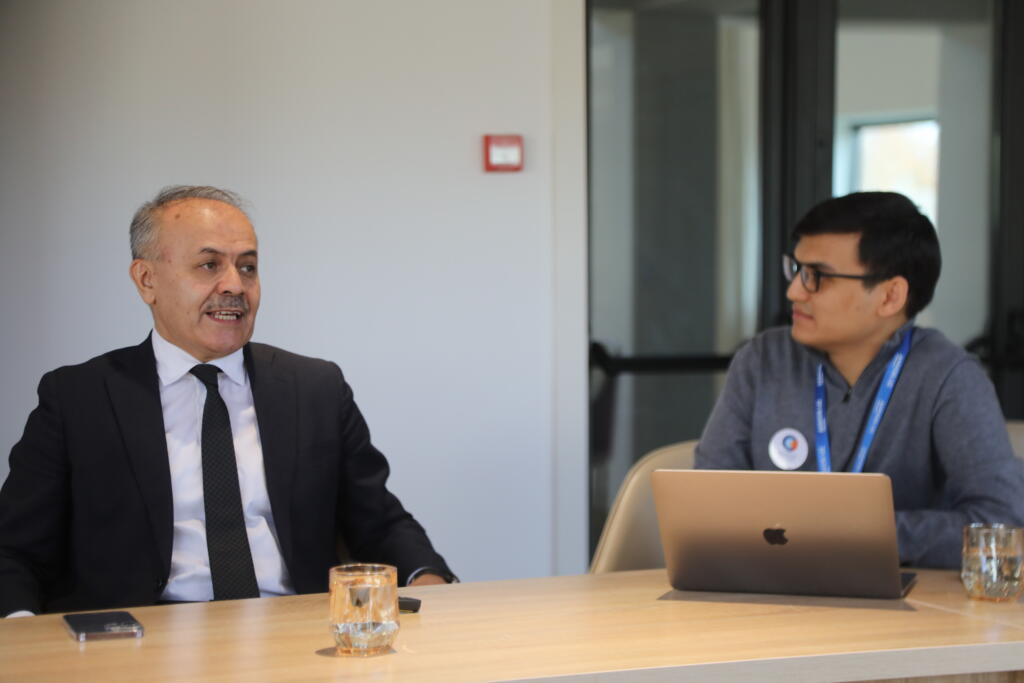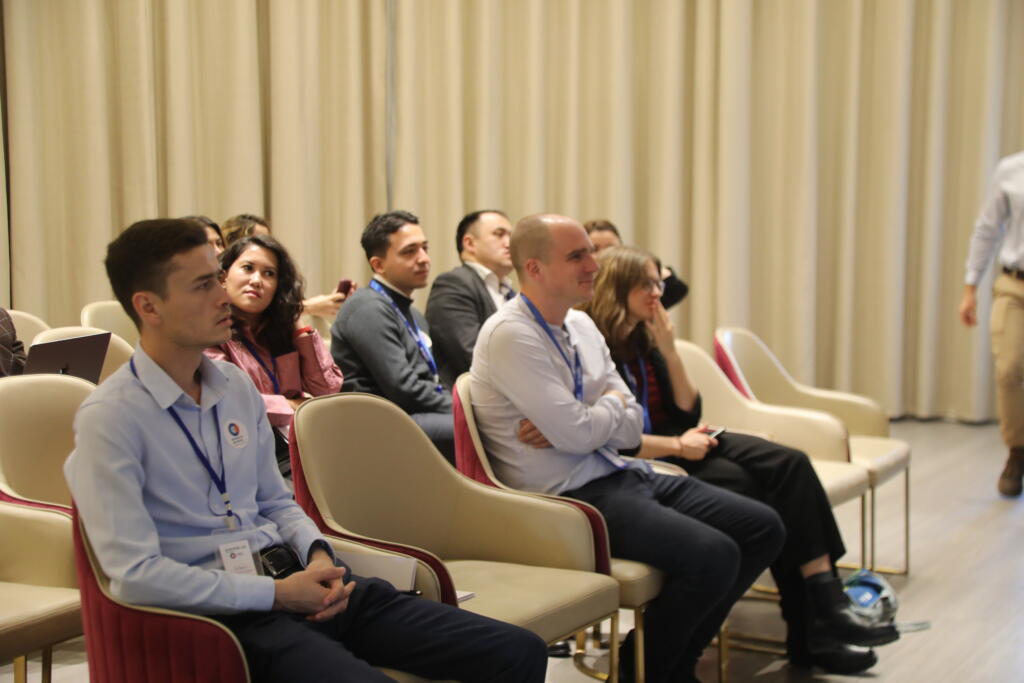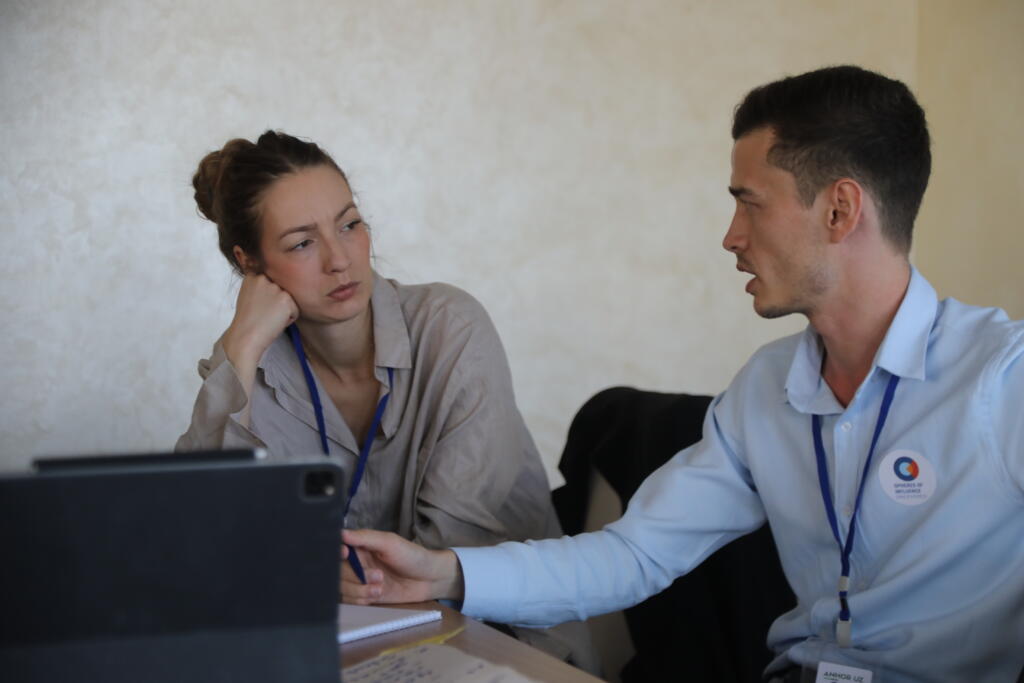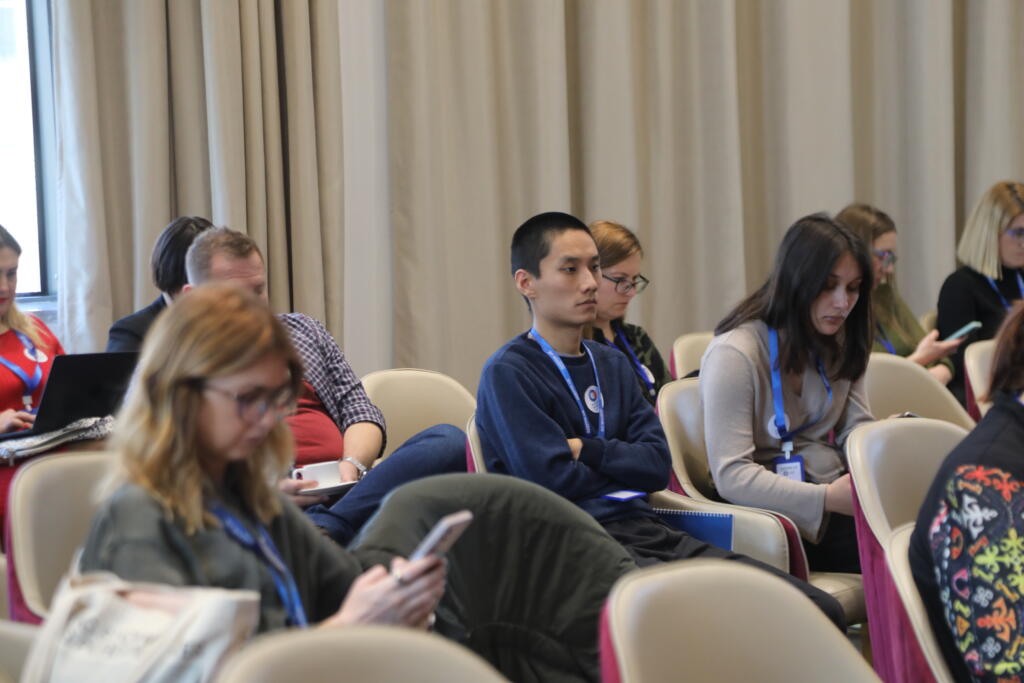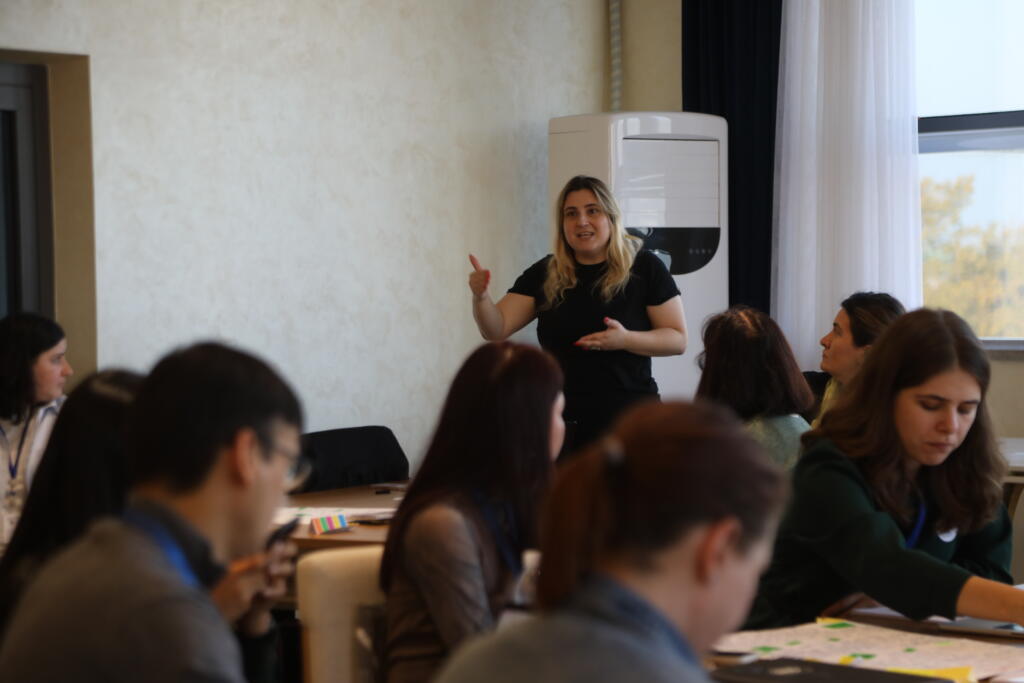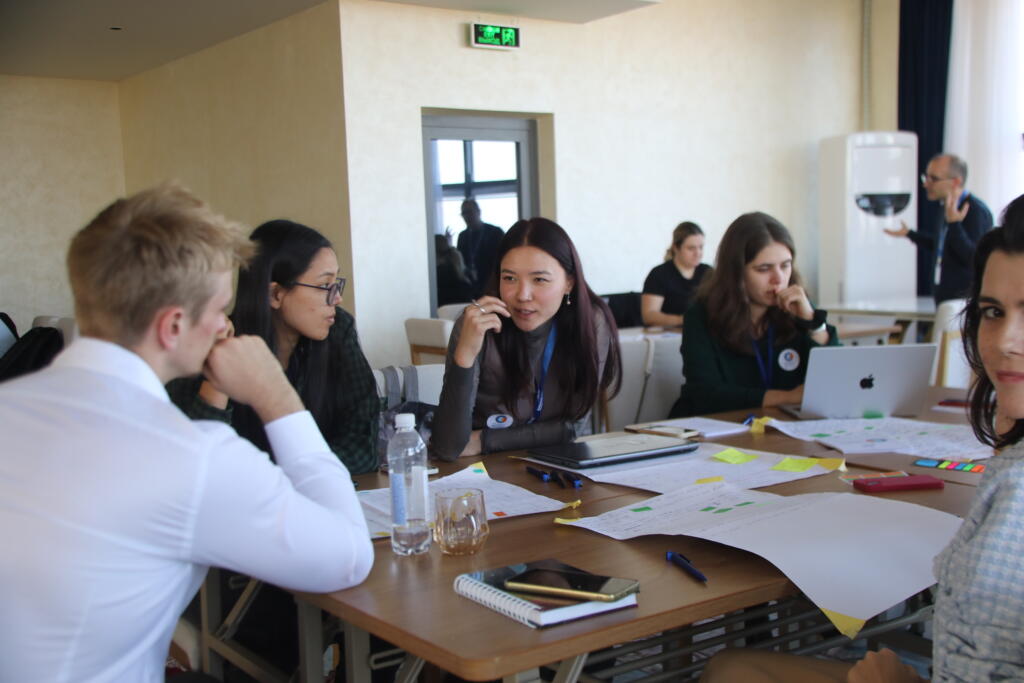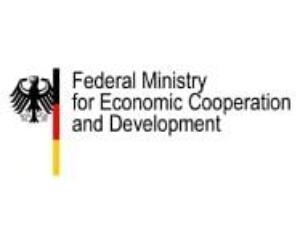Our continent has entered a new era of great power rivalry and economic competition. Against this tumultuous backdrop, Spheres of Influence Uncovered empowers local journalists to explore the connections between these larger, geopolitical trends and their local economic impact.
Over the past two years, the journalists participating in this project have written a number of fantastic data-driven, cross-border, and multimedia stories on a range of topics – from the benefits and drawbacks of free trade agreements with China, to the spread of the European gig economy to Georgia.
They have also been busy gathering data in cross-border research groups as part of wider efforts to understand and visualise their countries’ economic cooperation with China, Russia, and the EU. These efforts include mapping development projects financed by China, Russia, and the EU, as well as gathering data on energy imports and exports.
In Samarkand, a historic city that has seen the rise and fall of great empires, our journalists had the opportunity to present their work, exchange ideas, and to receive further training on how to collect and use data.
The Samarkand event not only helped journalists build capacity and develop story ideas but also offered a very rare opportunity for journalists from Georgia, the Western Balkans, and Central Asia to create strong cross-border connections and learn about the media landscapes in their respective countries.
The first two days of the conference were dedicated to an internal workshop on data-journalism, led by Savia Hasanova from the School of Data Kyrgyzstan. Participating journalists were also given the opportunity to develop pitches based on their data research.
For most of the journalists, it was the first time that they had met the colleagues in their respective cross-border research groups. With any cross-border project, creating in-person connections is key to success, and this first part of the workshop provided time for networking while building the capacity of journalists in data sourcing, processing, and visualisation.
The internal part of the event culminated in an on-site visit to "Silk Road Samarkand," a $580 million project owned by the Uzbek businessman Bakhtiyor Fazilov, involving investment from a Chinese hotel group. Before the trip, journalists were encouraged to conduct critical research on the project, and the field visit offered a valuable opportunity to connect their research on foreign investment with field research.
The second part of the Samarkand conference brought together media professionals from the region alongside experts in areas such as data journalism and Chinese investment.
The program featured panel discussions with expert contributions, while journalists from the project’s research groups also presented their work to a broader community of peers and specialists, creating a platform for knowledge sharing and peer-to-peer review.
Panels included:
- Surviving the New Cold War: Experts from Serbia, Uzbekistan, and Georgia discussed how their respective countries are navigating tensions between incumbent powers and a rising China.
- Data Journalism in Eurasia: Three experienced data-journalists from the regions involved in the Spheres of Influence Uncovered projects discussed their award-winning projects before opening to the audience for a Q&A.
- Reporting in Central Asia: Drawing on the expertise of journalists from four Central Asian countries – Kazakhstan, Uzbekistan, Kyrgyzstan, and Tajikistan – this panel explored changes in their respective media landscapes, as well as introduce the unique journalistic challenges of operating in Central Asia to colleagues from outside the region.
The external part of the conference culminated in a "World Cafe" style discussion, during which experts circulated amongst journalists from the research groups, providing critical insight and feedback on their work and stories.
For the n-ost team, the Samarkand conference really highlighted the value of creating spaces where journalists can step back from daily reporting to reflect and collaborate. Beyond the skills gained and the connections made, the events underscored the importance of cross-border journalism in making sense of complex economic and geopolitical shifts. As global competition and influence play out in local contexts, these kinds of exchanges help journalists uncover the deeper patterns shaping their regions.

